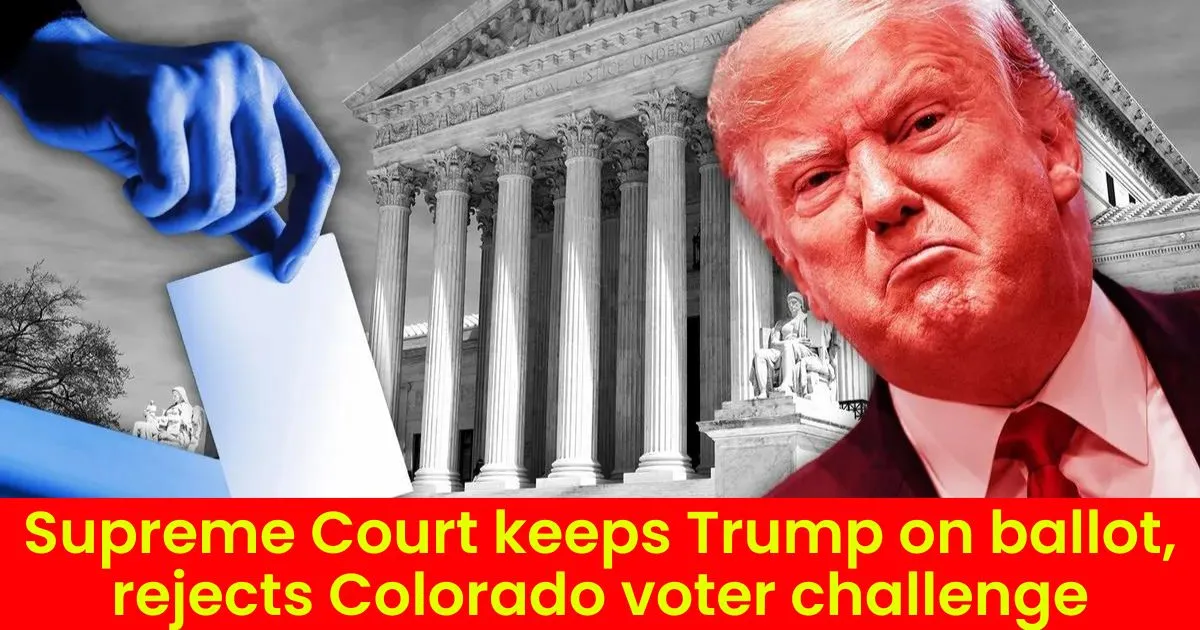In a significant ruling on Monday, the Supreme Court declared that former President Donald Trump should remain on the ballot in Colorado, effectively quashing a months-long debate over whether he violated the “insurrectionist clause” of the 14th Amendment.
The decision marks a major victory for Trump, eliminating one of the numerous legal hurdles that have characterized his campaign against President Joe Biden. However, it’s crucial to note that this ruling does not impact the four ongoing criminal cases against Trump, including the federal election subversion case related to the events of January 6, 2021.
This landmark decision, the first time the high court has addressed Trump’s actions on January 6, comes just a day before Super Tuesday, during which 16 states and territories, including Colorado, are set to hold nominating contests.
The legal battle over Trump’s candidacy centered on the interpretation of the 14th Amendment, particularly Section 3, which bars individuals who engaged in insurrection from holding office again. While some victories were achieved in state courts, the Supreme Court ultimately upheld Trump’s right to appear on the ballot.
Trump and his legal team have consistently derided the 14th Amendment lawsuits as unconstitutional attempts by Democrats to thwart his candidacy. They argue that voters should have the opportunity to decide whether Trump should return to the White House.
The case in Colorado, initiated by the liberal-leaning watchdog group Citizens for Responsibility and Ethics in Washington on behalf of Republican and independent voters, led to a series of decisions that ultimately reached the Supreme Court. Despite the state courts’ rulings against Trump, the Supreme Court’s decision favored his candidacy.
Notably, similar challenges against Trump in other states, including Minnesota, Michigan, Massachusetts, and Oregon, were rejected on procedural grounds. However, the Colorado case presented a unique legal landscape that made its way to the nation’s highest court.
During the Supreme Court arguments, conservative justices appeared inclined to support Trump’s position, while liberal justices raised pointed questions about the implications of allowing a single state to determine presidential candidacy eligibility.
Ultimately, the Supreme Court’s decision to uphold Trump’s presence on the ballot in Colorado reinforces his position as a frontrunner for the GOP nomination and sets a precedent for future legal challenges to his candidacy in other states.



